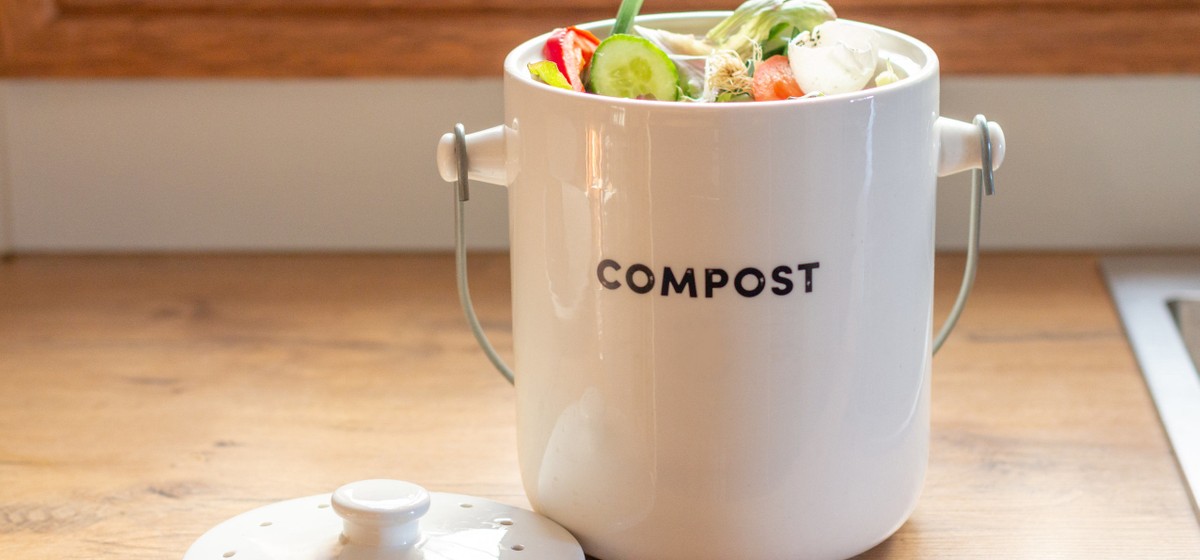How to Reduce Waste in Your Kitchen




Food waste is one of the biggest issues of our time--I’m not the first to tell you this. If you think about every little thing you throw away in a day, the majority of it likely relates to food. Reducing waste in the kitchen is not about doing everything perfectly, or spending hundreds of dollars on new expensive gadgets. It’s one hundred percent about trying! Here are my favorite tips to reduce your waste stream in the kitchen.
Water from the tap is free people. Free; at least for now. Maybe we can attribute the rise of water bottle popularity to the 90s MTV show Cribs, but gone are the days of glamorizing a fridge fully stocked with a variety of single-use packaged beverages. It might have been a status symbol before, but now it just plays ignorant. Skip the single-use water bottle and buy a reusable one. Sometimes you’ll need to buy bottled water when you’re out and about when it’s the only option. That’s okay. This is about the bigger picture here and skipping single-use as much as possible.
*Pro-Tip: Find a reusable bottle you adore, and it won’t feel like work to carry it with you.
Who doesn’t have paper towels on their counter at home? Almost everyone does. I will admit I have used an excessive amount of paper towels as a culinary professional. Despite this, I have quickly discovered they are not as necessary as you might think. I recently switched my personal kitchen to a paper towel free zone, and haven’t had any pressing issues without them. I use far more towels which inevitably means more laundry, but my trash can is no longer filled up with paper towels, and my credit card doesn’t miss the purchases. If you can’t bear the thought of no paper towels, fear not! There are many reusable paper towel options.
*Pro-Tip: Have designated reusable towels for different things like cleaning, cooking, hand drying, etc.

It may seem obvious to say, but composting is a crucial step. When you compost your food, you are allowing it to break down as nature intended without the disruption of chemicals from other trash. Composted food has the opportunity to literally recycle its nutrients back into the soil creating a healthier and more vibrant ecosystem for the next crops to grow. Figuring out your composting routine will take some work, and it’s not always simple. It often means taking an extra step to compost, but it’s the right thing to do for the planet. Once you start to compost, it becomes an easy and embraced part of your routine.
*Pro-Tip: Throw your scraps in the freezer if you can, this allows you more flexibility for compost drop off. I take mine to various places depending upon the day including the farmers market, neighborhood compost drop off sites, and my workplace. You’re just one click away from finding your local compost site or service!
Imagine we live in a world where you have to pay for the amount of food scraps you throw away, you might look at your food scraps differently. Rethinking food waste means looking at every piece of food differently. greens on top of carrots?
*Pro-Tip: Save vegetable scraps for homemade stock! This is one of my all-time favorite ways to use up bits of things that would have been thrown out. Ends left from onions? Carrot peels? Heck yes! Parsley stems, you betcha! Throw all your scraps into a bag and keep it in your freezer. When you need stock, mix the scraps with water, season to taste, simmer for at least an hour, strain and enjoy. Just be sure to wash all ingredients prior to cooking so you don’t get any dirt in your stock. The best part about homemade stock is you know exactly what went in it, you save money, and you’re able to get the most use out of those flavorful scraps you saved!
I’m not referencing your tote collection that you put all your groceries into; I hope you’re already doing that. I’m talking about all the other plastic bags you use in the grocery store - all of that plastic adds up quickly. You know, the ones you put all your lemons, and broccoli into. What about zip-top bags, or better yet, cloth alternatives?
*Pro-Tip: Still using up that last box of Ziploc bags? Stretch their use out as long as possible! Wash out your old ones and reuse them.
There are so many things we can be reusing, or buy in reusable forms. You know all those peanut butter and honey jars you throw away? Save them! Use them to store other food items, your homemade lunch, or even household things (think: hair ties, paper clips, coupons, you name it!). Alternatively you could store any bulk items in these jars like beans or rice.
*Pro-Tip: I love my reusable metal coffee filter and loose leaf tea filter. Coffee filters and tea bags are such common everyday waste that isn’t always top of mind.
Part of the problem is eliminating all that sneaky grocery store packaging you don’t even realize --or you realize, and find hard to avoid. This problem is easily solved if you’re able to shop at your local farmer’s market or Greenmarket. The produce and other food you’ll find there is coming directly from farms and there is no middle man, and thus, no need for packaging!
*Pro-Tip: If your schedule is a bit too busy for a trip to the farmer’s market, look into local farm CSA delivery programs and/or local farm collectives, you can often find great and inexpensive local food programs.
Tackle one, or tackle all; it is up to you! I have a hunch if you have taken the time to read this article, you care enough to make all of these easy habit changes to reduce your footprint with food.